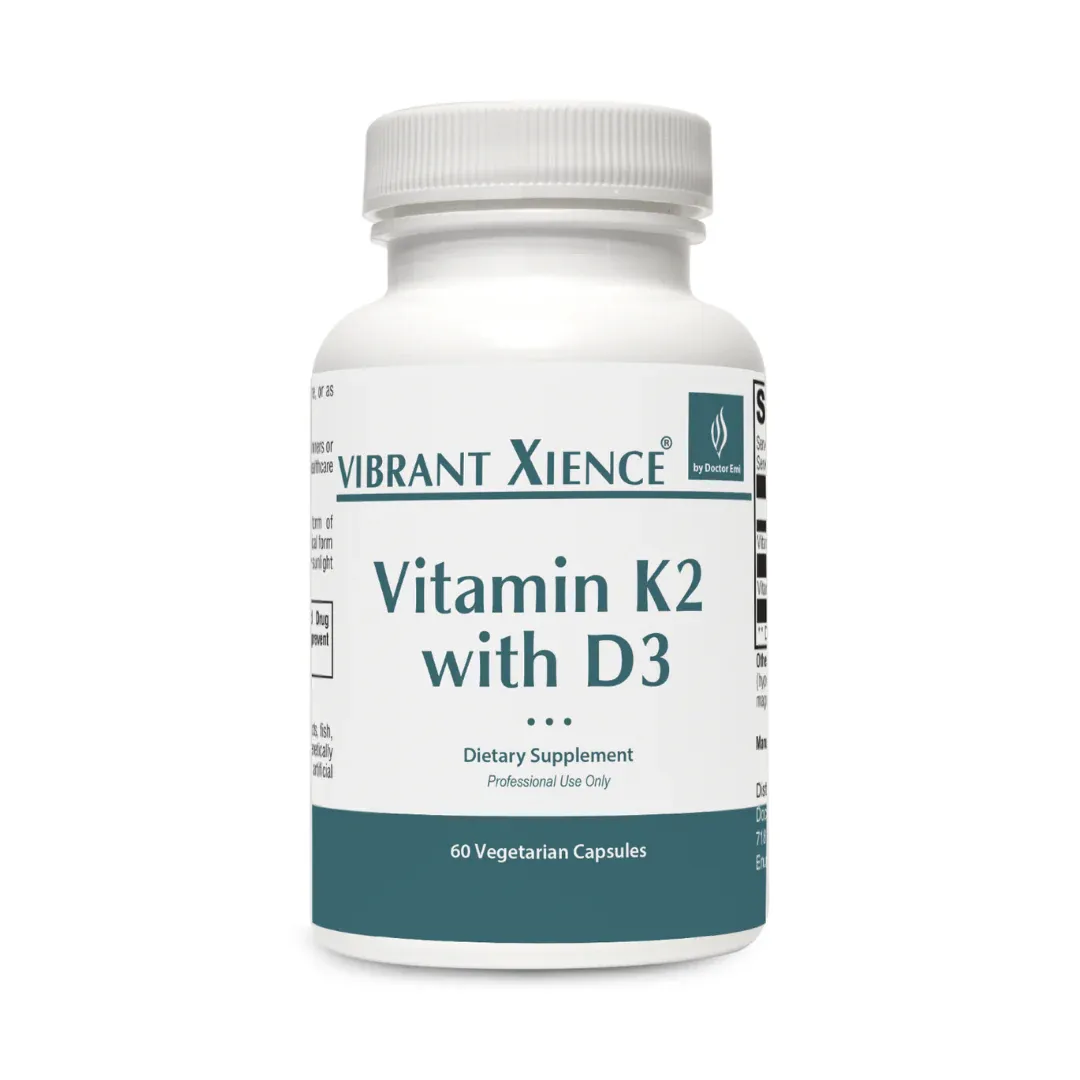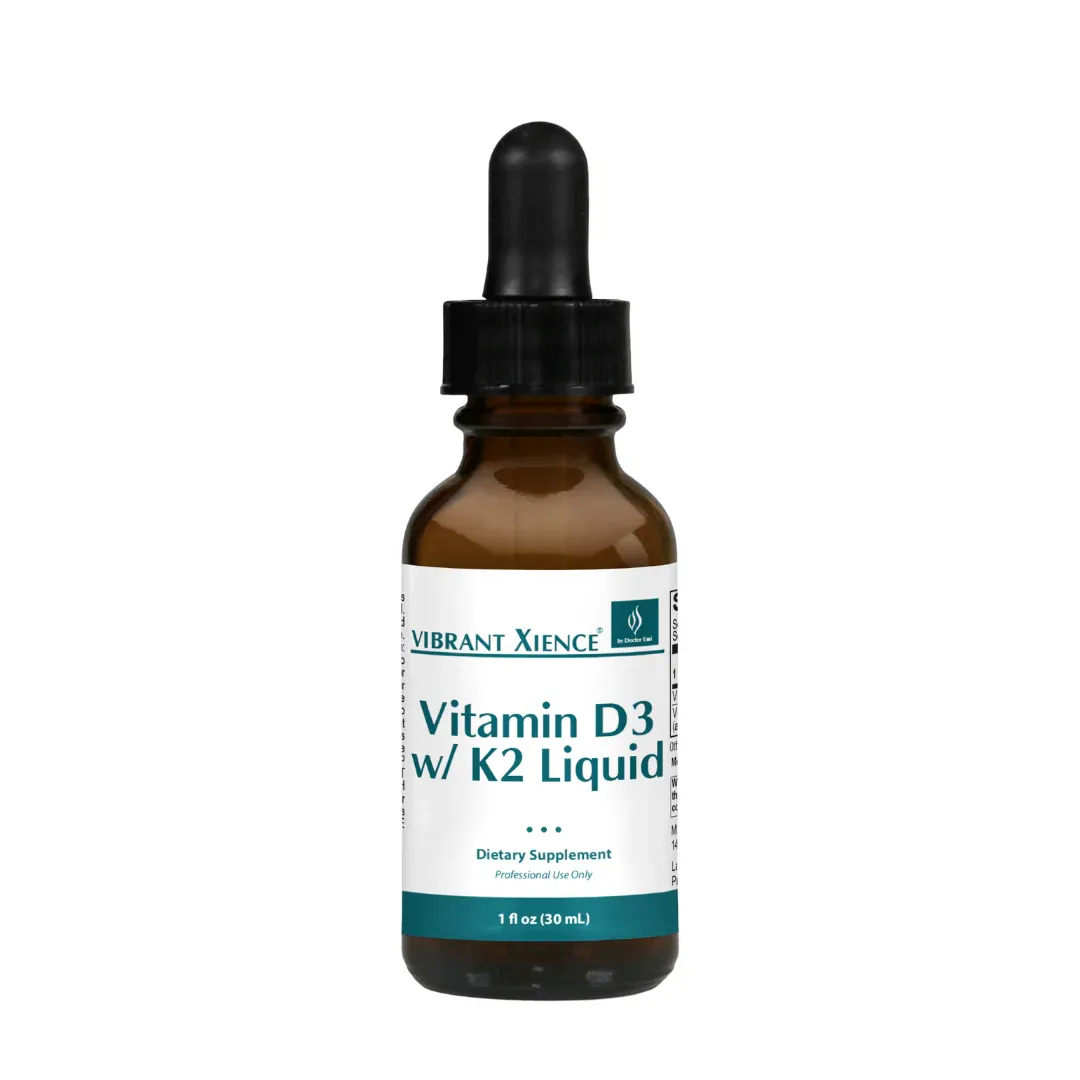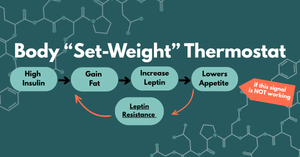Ever feel like you're playing a weight loss game where someone keeps changing the rules? Well, plot twist: your genes might be the sneaky dungeon master of this particular adventure. Let's dive into why your vitamin D supplement might be playing hide and seek with your fat cells, and what you can do about it.
The DNA Drama: Why Your Genes Might Be Ghosting Your Vitamins
Remember that friend who can eat an entire pizza and still look like they do CrossFit twice a day? While they're out there living their best life, you're counting calories like you're training to be an accountant. The plot thickens: it might actually be your genes playing favorites with vitamins.
Meet the Cast of Characters in Your Cellular Soap Opera:
- VDR (The Velvet Rope Receptor)
Think of VDR as the world's pickiest nightclub doorman. Some people's VDR is like a chill bouncer who high-fives everyone on their way in. Others? Their VDR is giving full TSA pat-down vibes to every vitamin D molecule that tries to enter. If you've got certain VDR variants, your body's basically running the most exclusive club in town – and vitamin D can't get on the list. - GC (The GPS Gone Wrong)
This gene is supposed to be vitamin D's personal Uber driver. But if you've got variants here, it's more like having a driver who still uses MapQuest printouts from 2005. Your vitamin D might end up taking the scenic route instead of getting where it needs to go. - CYP2R1 (The Molecular Mixologist)
This gene is your body's vitamin D bartender. It's supposed to turn vitamin D2 into D3 – like turning grape juice into fine wine. But some people's CYP2R1 is more like a bartender who can't tell the difference between a martini and a margarita. If this is you, you'll need your D3 straight up, no mixing required.
The K2-MK7 Solution: Your Vitamin D's Personal Assistant
Let's talk about vitamin K2-MK7 – the executive assistant your vitamin D desperately needs. MK7 is the professional who shows up early, stays late, and keeps everything running smoothly for up to 72 hours.
Why MK7? Here's what makes it special:
- Stays in your body longer (up to 72 hours)
- More efficiently absorbed
- Better at activating vitamin D-dependent proteins
- Helps ensure calcium goes to your bones, not your arteries
Success Stories: Real People, Real Results
The Tech Exec's Transformation
Meet Sarah, a 42-year-old tech exec who was doing everything "right":
- Morning sun salutations? Check.
- Vitamin D supplements? Double check.
- Healthy diet? Triple check.
Yet her weight wouldn't budge. After genetic testing, she discovered she had variants in both her VDR and CYP2R1 genes. Once she switched to a higher dose of D3 (prescribed by her doctor) and added K2-MK7, she finally started seeing results. "It was like someone finally gave me the right key to a door I'd been trying to pick for years," she says.
The Gym Enthusiast Who Couldn't Break Through
Meet James, 35, personal trainer and health nut. "I was the walking definition of fitness frustration," he laughs. "Here I was, training others to lose weight while carrying an extra 15 pounds I couldn't shed." After genetic testing revealed he had a VDR variant, James adjusted his vitamin D3 intake and added K2-MK7. "Within three months, not only did those stubborn pounds start melting away, but my energy levels went through the roof. Now I test all my clients for these variants."
The Skeptical Scientist
Dr. Maria Chen, 48, wasn't easily convinced. "As a biochemist, I needed to see the data," she explains. Her genetic test revealed both GC and CYP2R1 variants, explaining why standard vitamin D supplements weren't doing the trick. "Once I understood my genetic profile and adjusted my supplementation, my body finally started responding to my weight loss efforts. The scientist in me was both humbled and fascinated."
The Perpetual Dieter's Breakthrough
Lisa, 52, had tried every diet under the sun. "Low-carb, keto, intermittent fasting – you name it, I'd done it," she sighs. Her genetic testing revealed she had all three variants: VDR, GC, and CYP2R1. "Learning about my genetic profile was like finding the last piece of a puzzle I'd been working on for decades." With personalized vitamin D3 and K2-MK7 supplementation, Lisa finally broke through her weight loss plateau. "I lost 27 pounds in 6 months, but more importantly, I finally understood why previous attempts had failed."
The Busy Mom's Victory
Jennifer, 39, mother of three, was struggling with post-pregnancy weight that wouldn't budge. "I was doing everything right – eating well, exercising when I could, taking my vitamins. But nothing changed." Her genetic test revealed a VDR variant that affected how her body used vitamin D. "Once I adjusted my supplementation based on my genetic profile, the weight started coming off. I've lost 32 pounds and kept it off for over a year now."
The Science Behind Fat Loss and Vitamin D
Research shows that vitamin D plays several crucial roles in weight management:
- Controls hunger hormones
- Improves muscle efficiency
- Helps regulate fat cell formation
- Supports healthy metabolism
For people with VDR variants, these effects can be blunted unless they maintain higher vitamin D levels. Studies show that individuals with certain VDR variants may need 2-3 times more vitamin D to achieve the same benefits as those without these variants.
Getting Tested: CSI Meets Your Health Journey
Ready to solve your own vitamin D mystery? Here's the scoop on testing:
Basic Testing Package:
- 25-hydroxy vitamin D blood test (the standard vitamin D test)
- Basic genetic screening for VDR variants
Advanced DNA Detective Work:
- Full panel genetic testing for VDR, GC, and CYP2R1 variants
- Comprehensive vitamin D metabolite testing
- Calcium and other mineral level testing
Optimal Ranges:
- Vitamin D levels: 50-80 ng/mL for most people
- Higher ranges may be needed for those with genetic variants
- K2-MK7: 100-200 mcg daily
Factors That Can Affect Your Results:
- Stress (because we needed another reason to zen out)
- Lack of sleep (your genes need their beauty rest too)
- Certain medications
- Seasonal changes in sun exposure
- Body composition (more body fat = more vitamin D needed)
The Gut Connection: Your Microbiome's Role in the Vitamin D Story
Think your genes and vitamin D are having a private party? Plot twist: your gut bacteria just crashed it – and they're actually VIP guests! Recent research has revealed a fascinating connection between your genetic variants, vitamin D metabolism, and your intestinal health.
Your Gut: The Unexpected Vitamin D Bouncer
Remember our friend VDR, the picky club bouncer? Turns out, it's not just working the velvet rope at Club Fat Cell – it's also manning the door at Club Intestine. VDR variants can affect:
- How well your gut barrier functions (think of it as your intestinal security system)
- The diversity of your gut bacteria (like having a more or less interesting party mix)
- Your immune system's response to different foods and bacteria
Studies show that people with certain VDR variants might have:
- Different gut bacterial compositions
- Altered intestinal permeability
- Various responses to inflammatory triggers
- Changed nutrient absorption patterns
The Microbiome-Vitamin D Dance Party
Here's where it gets interesting: your gut bacteria aren't just passive partygoers. They're more like skilled DJs, helping to:
- Regulate vitamin D absorption
- Influence how vitamin D affects your immune system
- Impact how efficiently your body uses vitamin D for fat metabolism
For those with VDR or GC variants, this relationship becomes even more crucial. Your genetic variants might mean you need to pay extra attention to both your vitamin D levels AND your gut health. It's like needing both a good DJ and a good bouncer to throw the perfect party!
Real-World Impact
Take Mark, one of our genetic testing participants. His VDR variant testing led to not just vitamin D optimization but also a focus on gut health. "Once I understood the connection between my genes, vitamin D, and gut health, everything changed. Working on all three aspects together helped me lose weight and improve my digestion at the same time."
🌟 Join Our Genetic Testing Program! 🌟
We're launching a comprehensive DNA analysis service that will help you understand exactly how your genes are affecting your vitamin D metabolism and weight loss journey.
Sign up for our waiting list to receive:
- Early access to testing
- Special founding member pricing
- Exclusive educational content about your genetic variants
- Personalized supplement recommendations based on your genetic profile
Visit [website] or scan this QR code to join the waiting list.
References:
- Salehpour, A., et al. (2012). "A 12-week double-blind randomized clinical trial of vitamin D₃ supplementation on body fat mass in healthy overweight and obese women." Nutrition Journal, 11:78.
- Wong, K.E., et al. (2011). "Involvement of the vitamin D receptor in energy metabolism: regulation of uncoupling proteins." American Journal of Physiology-Endocrinology and Metabolism, 300(3):E484-E493.
- Jiang, H., et al. (2018). "Association of vitamin D receptor gene polymorphisms with metabolic syndrome." Lipids in Health and Disease, 17:37.
- van Ballegooijen, A.J., et al. (2019). "The Synergistic Interplay between Vitamins D and K for Bone and Cardiovascular Health." International Journal of Endocrinology, 2019:7536828.
- Didriksen, A., et al. (2013). "The serum 25-hydroxyvitamin D response to vitamin D supplementation is related to genetic factors, BMI, and baseline levels." European Journal of Endocrinology, 169(5):559-67.
- Nimitphong, H., et al. (2013). "The association between vitamin D status and circulating adipokines." Clinical Endocrinology, 78(2):184-90.
- Schilling, S. (2012). "Vitamin K2 and the Calcium Paradox: How a Little-Known Vitamin Could Save Your Life." John Wiley & Sons.
- Jones, G., et al. (2014). "CYP2R1 is a major, but not exclusive, contributor to 25-hydroxyvitamin D production in vivo." PNAS, 111(20):7608-7613.
- Swanson, C.M., et al. (2014). "Metabolic effects of vitamin D supplementation in vitamin D deficient individuals with metabolic syndrome: a randomized controlled trial." Clinical Nutrition, 33(4):565-572.
- Shearer, M.J., et al. (2014). "Vitamin K and Vitamin K-Dependent Proteins: A Review of Recent Advances from Basic and Clinical Research." Clinical Chemistry and Laboratory Medicine, 52(2):171-187.
- Fang, Y., et al. (2017). "Vitamin D binding protein genotype and osteoporosis." Calcified Tissue International, 85(2):85-93.
- Nissen, J., et al. (2014). "Common variants in CYP2R1 and GC genes predict vitamin D concentrations in healthy Danish children." PLoS One, 9(2):e89907.
- Mokry, L.E., et al. (2015). "Vitamin D and Risk of Multiple Sclerosis: A Mendelian Randomization Study." PLoS Medicine, 12(8):e1001866.
- Carlberg, C., et al. (2018). "Two Nuclear Vitamin D Receptor Populations in a Single Cell." Trends in Endocrinology & Metabolism, 29(10):659-668.
- Bouillon, R., et al. (2019). "Vitamin D and Human Health: Lessons from Vitamin D Receptor Null Mice." Endocrine Reviews, 40(4):1109-1151.
- Waterhouse, M., et al. (2022). "Vitamin D and the gut microbiome: a systematic review of in vivo studies." European Journal of Nutrition, 61(2):359-374.
- Singh, P., et al. (2020). "Vitamin D deficiency in the gut microbiome and metabolism: A narrative review." Diabetes/Metabolism Research and Reviews, 36(4):e3293.
- Chen, L., et al. (2021). "Vitamin D Receptor Gene Polymorphisms and the Risk of Inflammatory Bowel Disease: A Meta-Analysis." Digestive Diseases and Sciences, 66(8):2754-2766.
- Tabatabaeizadeh, S.A., et al. (2018). "Vitamin D, the gut microbiome and inflammatory bowel disease." Journal of Research in Medical Sciences, 23:75.
- Wu, S., et al. (2020). "Vitamin D Receptor Pathway Is Required for Probiotic Protection in Colitis." American Journal of Physiology-Gastrointestinal and Liver Physiology, 319(4):G548-G556.
Disclaimer: This information is educational and not medical advice. Always work with your healthcare provider before starting any new supplement regimen. Results may vary based on individual genetic profiles and other factors.
© 2024 Dr. Emi Hosoda
For more health insights, follow @doctor.emi on Instagram and TikTok







